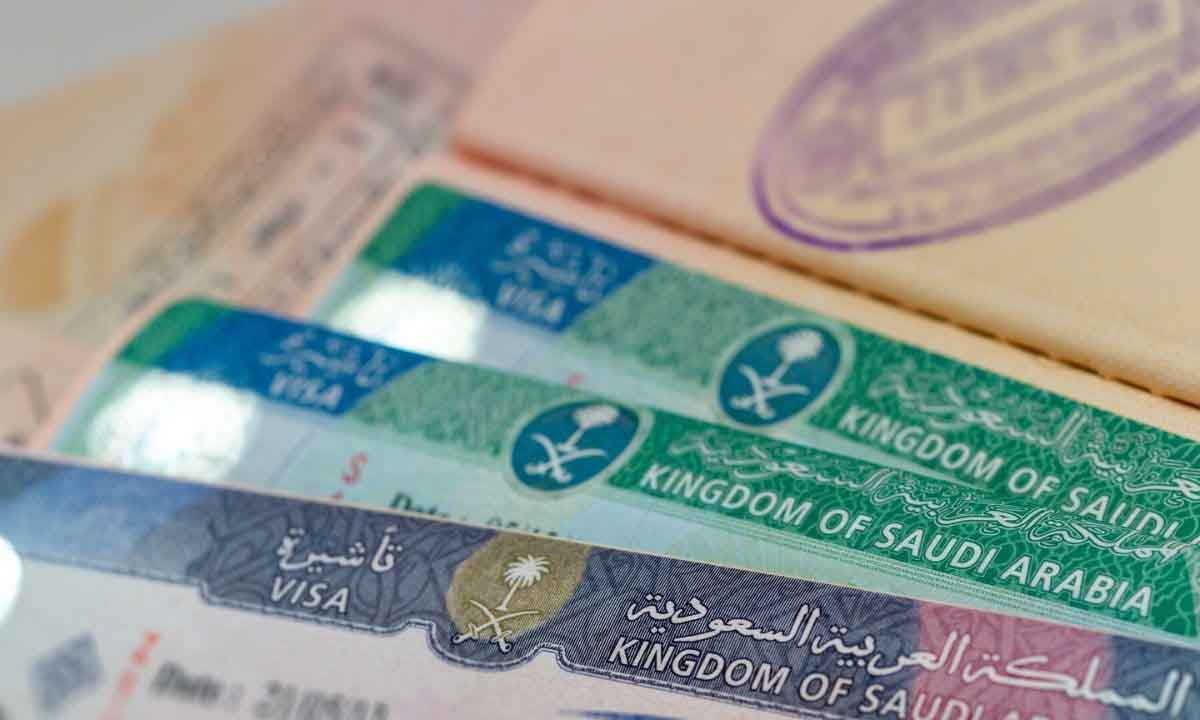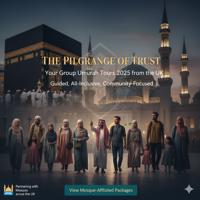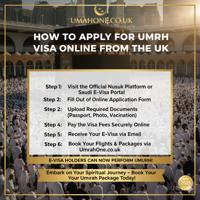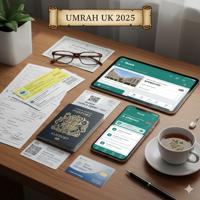Saudi Arabia Opens Umrah Access to All Types of Visa Holders
13 Oct, 2025
In a landmark move welcomed by millions of Muslims around the world, Saudi Arabia has officially announced that all visa holders, including those with tourist, business, and family visit visas, can now perform Umrah. The decision marks a significant step toward facilitating religious tourism and aligns with the Kingdom’s broader Vision 2030 goals to expand accessibility to the holy cities of Makkah and Madinah.
A Major Shift in Umrah Policy
Previously, pilgrims needed to obtain a specific Umrah or Hajj visa to perform the pilgrimage. This new directive, issued by the Ministry of Hajj and Umrah, eliminates that restriction. It allows travelers already visiting the country under any visa category to perform Umrah without additional documentation or processing.
According to ministry officials, the move aims to make the holy pilgrimage more inclusive, efficient, and welcoming for visitors from across the globe. The change also reflects Saudi Arabia’s ongoing efforts to enhance the spiritual experience of pilgrims and streamline travel procedures in line with digital transformation initiatives.
Facilitating Pilgrim Convenience
This announcement simplifies travel for millions of Muslims who visit Saudi Arabia for business, tourism, or family purposes. Many visitors previously had to go through lengthy application processes to acquire a separate Umrah visa. Now, with this policy, visitors holding valid entry permits can visit the Grand Mosque in Makkah and the Prophet’s Mosque in Madinah to perform Umrah rituals without any additional requirements.
The Ministry also highlighted that this policy applies to all types of visas, including e-visas and visas on arrival. This is particularly beneficial for nationals of countries eligible for the Saudi e-visa program, as they can now combine tourism with spiritual fulfillment.
Key highlights of the new policy include:
- All visa types, including tourist, business, and family visit visas, are eligible for Umrah.
- E-visa and visa-on-arrival holders can perform Umrah without a separate permit.
- No need for a special Umrah visa or embassy application.
- Visitors can plan their Umrah easily through the Nusuk digital platform.
- Policy applies to travelers from eligible countries around the world
Supporting Vision 2030 and Religious Tourism
The Saudi Vision 2030 plan aims to diversify the national economy, with tourism — particularly religious tourism — playing a central role. The Kingdom has already taken major strides in improving infrastructure, expanding airports, enhancing public transport, and developing hospitality services around the holy sites.
By opening Umrah to all visa holders, the government expects a substantial increase in the number of international visitors. Officials project millions more pilgrims to perform Umrah annually, contributing to local economic growth and cultural exchange.
The decision also complements other initiatives, such as the Nusuk app, which streamlines Umrah planning and booking. Through Nusuk, travelers can arrange accommodation, transportation, and permits conveniently in one digital platform, ensuring a seamless experience during their pilgrimage.
Digital Integration and Smart Services
Saudi Arabia’s Ministry of Hajj and Umrah continues to adopt smart technologies to improve pilgrims’ experiences. Digital systems now manage crowd control, transportation, and accommodation booking — essential factors during peak Umrah and Hajj seasons.
The integration of digital tools such as e-visa issuance and mobile apps has reduced waiting times and minimized bureaucratic hurdles. It also ensures better safety and organization during large gatherings, reinforcing the Kingdom’s image as a global leader in managing religious pilgrimages.
Welcoming Pilgrims from All Over the World
This new policy benefits visitors from both Muslim-majority and non-Muslim-majority countries. Travelers from nations such as Indonesia, Pakistan, Egypt, Turkey, Malaysia, India, the United Kingdom, and many African states are expected to take advantage of this simplified process. Even Muslims residing in Western countries, visiting Saudi Arabia for business or leisure, can now easily perform Umrah during their stay.
Officials have emphasized that this inclusive approach demonstrates Saudi Arabia’s commitment to serving Islam and facilitating access to the holy cities for all Muslims, regardless of their visa category. It also underscores the Kingdom’s hospitality and readiness to welcome visitors seeking both spiritual fulfillment and cultural exploration.
Economic and Spiritual Impact
The move is expected to generate positive economic effects, particularly in the hospitality, transport, and retail sectors. Hotels, airlines, and tour operators will likely experience increased demand, especially around Ramadan and other peak pilgrimage periods.
On a spiritual level, the announcement has been celebrated as a gesture of openness and compassion. For many Muslims, the ability to perform Umrah during a personal or professional trip to Saudi Arabia represents a long-awaited opportunity to strengthen their faith and connection to the holy sites.
Preparing for the Future of Religious Tourism
As part of its broader modernization efforts, Saudi Arabia continues to invest heavily in infrastructure and services for pilgrims. Recent expansions at King Abdulaziz International Airport in Jeddah and Prince Mohammad bin Abdulaziz International Airport in Madinah are designed to accommodate the rising influx of travelers.
Additionally, the expansion projects at the Grand Mosque in Makkah and the Prophet’s Mosque in Madinah demonstrate the government’s commitment to improving facilities and ensuring comfort and safety for visitors.
A Step Toward Greater Accessibility
The decision to open Umrah access to all visa holders symbolizes Saudi Arabia’s evolving approach to religious hospitality and its readiness to welcome pilgrims with open arms. By simplifying entry requirements and embracing digital innovation, the Kingdom has reaffirmed its dedication to serving the global Muslim community.
For millions of believers, this policy represents more than just administrative reform — it is a call to spiritual renewal and an open invitation to experience the sacred journey of Umrah, regardless of visa type or travel purpose.
Related News
-

15 Oct, 2025 Mosques in the UK Offering Group Umrah Tours 2025
Mosques in the UK Offering Group Umrah Tours 2025
read more -

14 Oct, 2025 Luxury Umrah Packages from London and Manchester – Early Bird Offers
Luxury Umrah Packages from London and Manchester – Early Bird Offers
read more -

12 Oct, 2025 How to Apply for Umrah Visa Online from the UK
How to Apply for Umrah Visa Online from the UK
read more -

09 Oct, 2025 Finding the Perfect Umrah 7-Day & 14-Day Umrah Packages for Families
Finding the Perfect Umrah Journey: Detailed Guide to 7-Day & 14-Day Umrah Packages for Families from London, Manchester & Birmingham
read more -

08 Oct, 2025 Documents and New Rules for Umrah Travel from the UK in 2025
Documents and New Rules for Umrah Travel from the UK in 2025
read more
